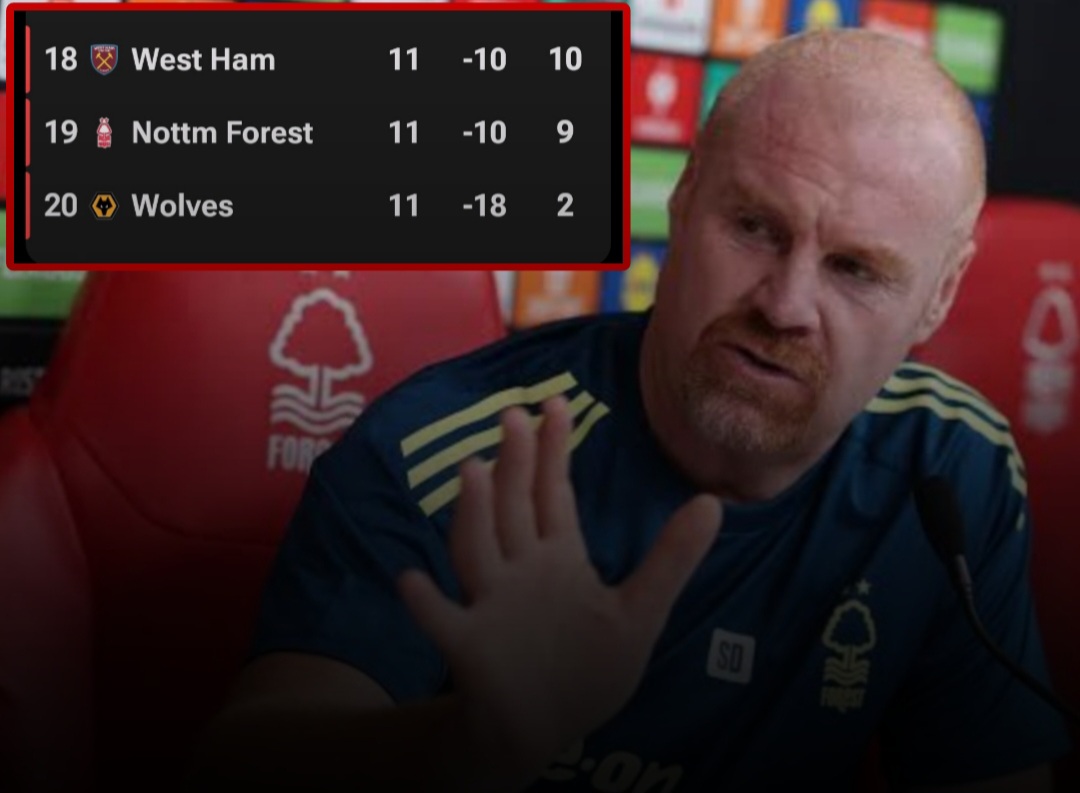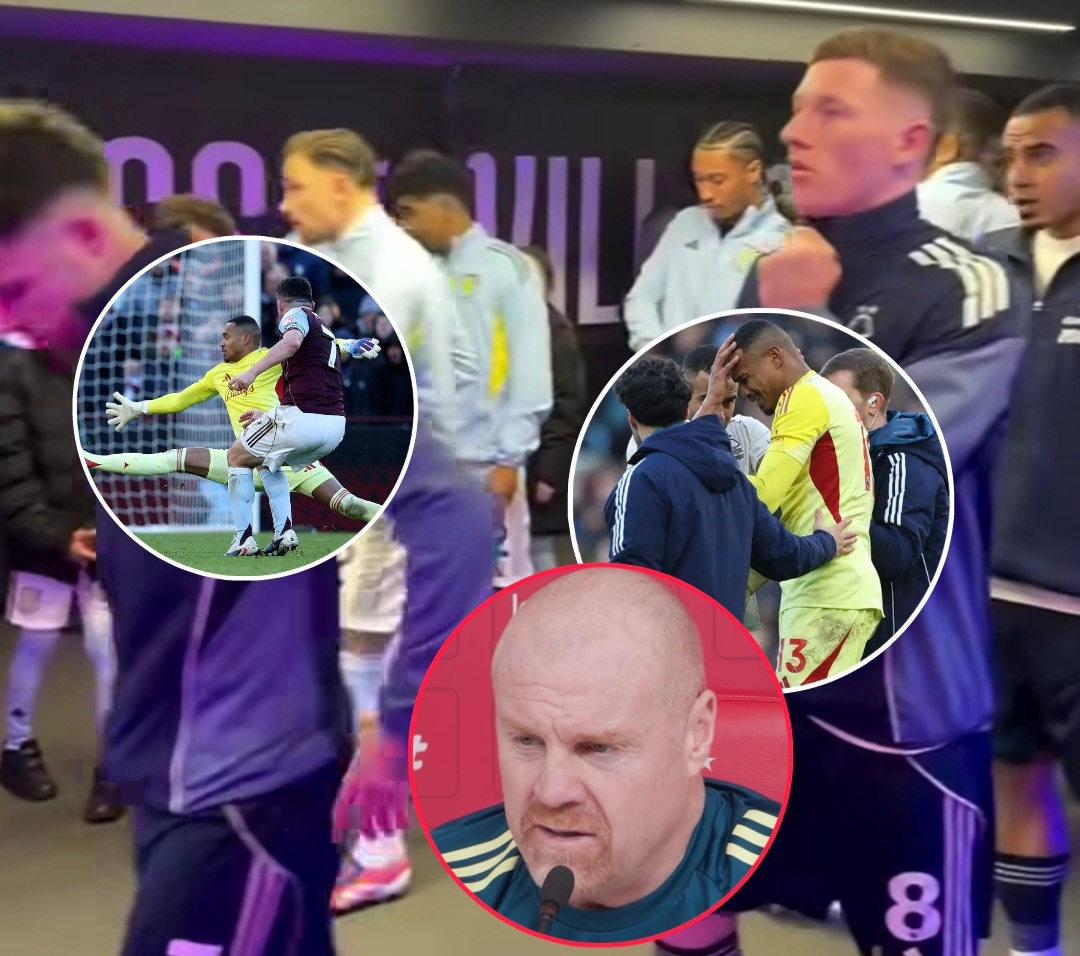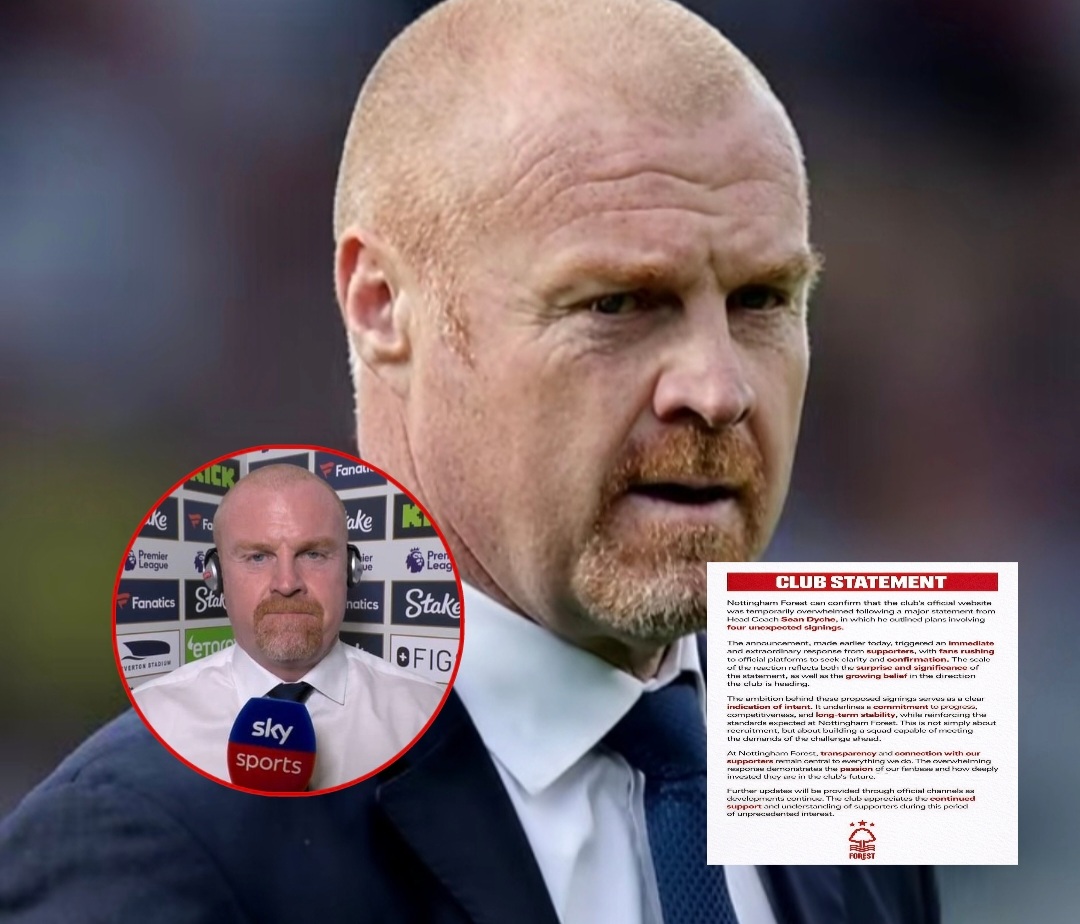NOTTINGHAM FOREST CRISIS DEEPENS AS SEAN DYCHE REVEALS WHAT MUST CHANGE TO AVOID RELEGATION
NOTTINGHAM FOREST CRISIS DEEPENS — BUT SEAN DYCHE JUST DROPPED A BOMBSHELL ON WHAT MUST CHANGE TO AVOID RELEGATION
Strap in. The City Ground has been a cauldron of hope, anger and panic this season, and the latest chapter reads like a Hollywood script written by someone who clearly hates stability. Nottingham Forest — a club with European nights in living memory and a passionate fanbase that refuses to be polite — looks perilously close to the kind of mess big-spending owners dread: a relegation scrap that could become a crisis. Enter Sean Dyche: pragmatic, blunt, and — for now — the man handed the keys. He’s not sugarcoating anything. He’s naming what the club must fix now if they are to escape the drop.
This is not a drill. Forest have already gone through managerial roulette this season — three permanent head coaches and a meltdown of continuity — and the wounds are still raw. Postecoglou’s shock exit, announced within weeks of his appointment, left players disoriented and supporters furious; that whirlwind made Dyche’s job an inferno from day one. The club’s owner has shown he will act fast when results aren’t delivered, which means there’s zero margin for error.
So what did Dyche say? And more importantly — what does he mean by it? Read on, because this article pulls no punches: we’ll expose the tactical truths, the dressing-room culture issues, the transfer strategy shambles, and the three brutal changes Dyche says have to happen — plus why fans should both panic and, bizarrely, feel a flicker of hope.
—
1) The blunt truth from the boss: “We must get the basics back” — and that’s not fluff
Dyche’s first public declarations after taking charge were as plain as a punch to the jaw: the team has lost sight of the basics. He wants structure, discipline, and the kind of defensive coherence that made him a darling of strugglers in the past. That’s not ideology — it’s survival. He has a reputation for carving out hard-working, defensively sound teams at Burnley and Everton; the idea is to stop conceding soft goals, stop surrendering leads and build from a bedrock of organization. If Forest continue to leak goals because of shape, concentration, and sloppy set-piece defending, Dyche’s tenure will be a brief footnote.
In plain terms: expect training ground drilling on positioning, set-piece routines, and defensive responsibilities. Under Dyche, the sexy counter-pressing idea gives way to structured pressure — compact lines, fewer risky gambles, and more emphasis on winning the second ball. It’s a style clash with what some fans have been sold since the summer, but Dyche’s point is ruthless: aesthetics mean nothing if you’re in the Championship next season.
—
2) Culture shock: stability over splashy statements
The turnover of managers this season — and the resulting patchwork of tactics and personnel — means the squad has been asked to learn three different languages in as many months. Dyche’s first demand was stability: consistent processes, clear leadership, and a common identity. That’s boring on paper, but it’s surgical in practice. Players who don’t know their role are liabilities; players who do, play with confidence. Dyche has publicly made stability a priority, and that’s a direct answer to the chaos that has marred Forest’s campaign.
If you’re picturing a locker room purge — benchings, finger-pointing, drama — that might come. But Dyche’s brand of culture change is rarely headline-grabbing in the moment; it’s about small, daily corrections that become unignorable over weeks. Expect stern words in training, clearer captaincy roles, and tougher selection decisions. The message to squad favorites: comfort won’t cut it.
—
3) Transfer mistakes and clarity on recruitment: stop buying the sizzle
One of Dyche’s implied criticisms is the club’s drift in recruitment. When a team spends without coherent scouting patterns — signing players that don’t fit a plan — you get a collection of talented individuals instead of a functioning unit. Dyche needs players who understand his system: aggressive, disciplined, and willing to execute the ugly work. That may mean some of the summer’s big names or expensive signings find themselves surplus to requirements, not because they lack talent, but because their profiles clash with Dyche’s blueprint.
Short version: expect a transfer window where function trumps flash. The club’s recruitment team will be under the microscope. Expect fewer gambles on flamboyant, high-cost players who require tactical crutches, and more investment in reliable, robust profiles who can do the dirty defensive work.
—
4) Tactical about-face — yes, Dyche will make you watch long balls… but there’s method to it
If you’re a Forest fan who loves possession and building from the back, prepare for cognitive dissonance. Dyche’s early teams are predictable: direct, structured, and with an emphasis on set-piece and aerial advantage. He’s pragmatic — if long balls and second-ball dominance produce points, he’ll use them. Think of it as tactical triage: when your back is against the wall, you choose the path most likely to keep you breathing. Fans will argue about aesthetics — but results buy goodwill, and the table doesn’t award points for pretty passing.
That said, Dyche is not a one-trick pony. Skilled players can still influence games under his system; he simply asks they fit within a tighter collective shape. Expect midfield discipline, structured wing play, and defensive staggering — a system that punishes individual error.
—
5) The immediate metrics that matter — and why a little recent positivity matters more than headlines suggest
Yes, crisis sells. But there are signs Dyche has already nudged the team in the right direction: a reaction in recent fixtures, including a meaningful win that injected points and belief. Those points don’t erase the mess, but they prove the manager’s measures can flick the switch. The key is whether this flicker turns into a flame. If Dyche can string together consistent defensive performances, sprinkle in a couple of set-piece goals and eke out points against relegation rivals, survival becomes realistic. If not, the panic cycle restarts — and this time, the consequences are existential.
—
6) The fans’ role — angry, loyal and utterly indispensable
Forest fans are not a passive bunch. They demand identity and deliver volume. Dyche knows this; he’s a Forest trainee himself and understands the weight the supporters carry. He’ll need them onside — but he won’t pander. His approach is to be honest: put in performances and the fans will respond. That dynamic could be decisive: ferocious home atmospheres have saved teams before. If the City Ground becomes an island of fight rather than a ground of quiet despair, Forest’s odds improve dramatically.
—
7) The ugly truth: if the club doesn’t change structure, it might be too late
Here’s the cold, clickbait headline you wanted: If Dyche’s changes don’t bite, Nottingham Forest could be looking at a collapse so dramatic it rewrites the club’s short-term history. It’s not doom-mongering — it’s logic. Relegation looms like a cliff edge that grows closer with every lost point. The only hope is rapid, coherent change: tactical solidity, recruitment sense, cultural repairs, and a fan base that turns their anger into relentless support.
—
Final verdict: panic, but with a plan
Dyche’s message is both simple and terrifying: return to basics or face consequences. He’s not promising miracles — just a pragmatic, structured attempt to stop the rot. That’s the tone of a man who has rescued clubs from relegation fights before. Whether Nottingham Forest responds will decide if this story becomes a heroic revival or one of the most spectacular collapses English football has seen.
This season is no longer about lofty ambitions or European dreams. It’s about survival, identity and whether a coach who trades charisma for discipline can make a battered squad believe again. For the City Ground faithful, that’s a terrifying, thrilling and utterly unpredictable proposition.








Post Comment